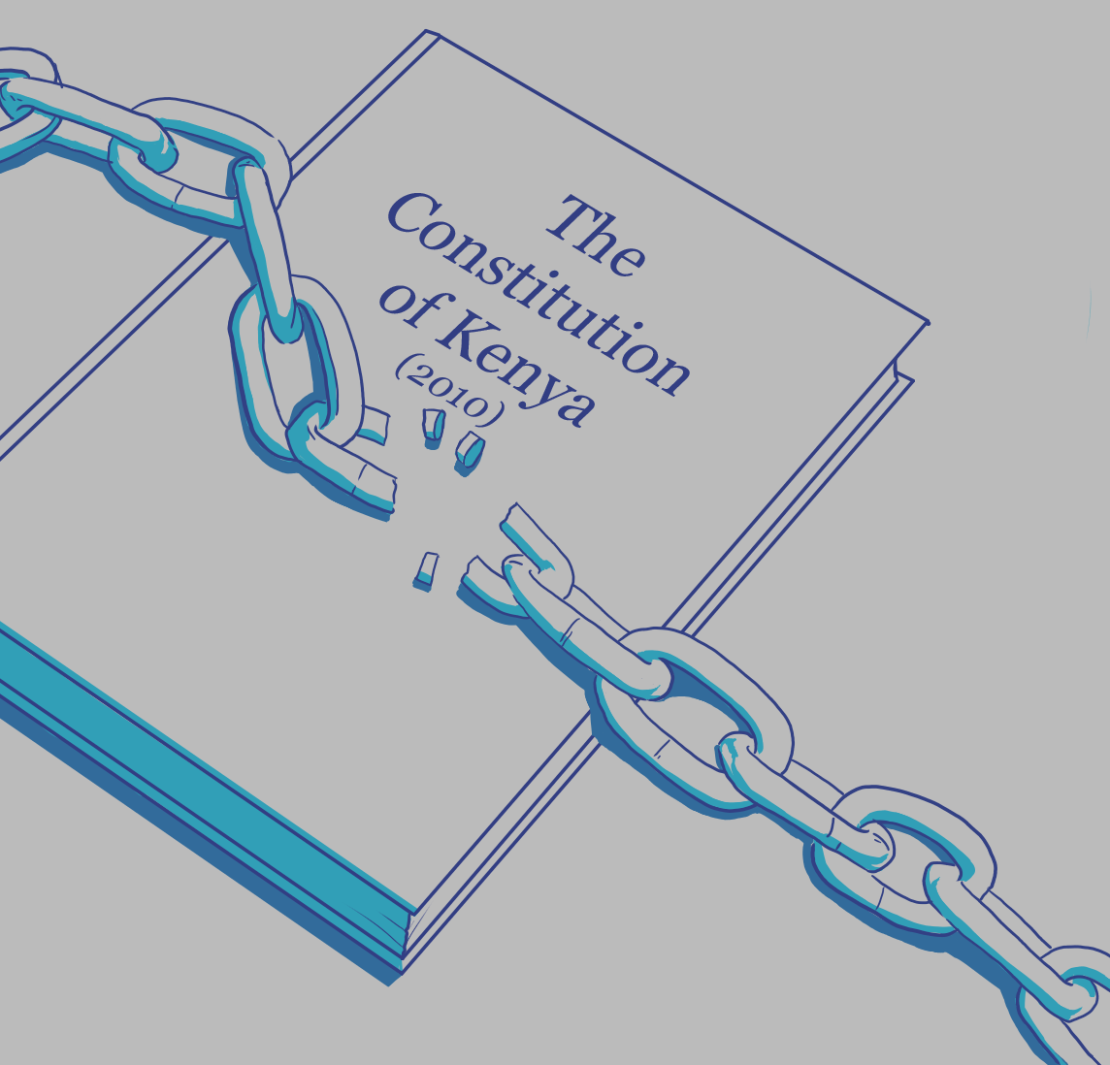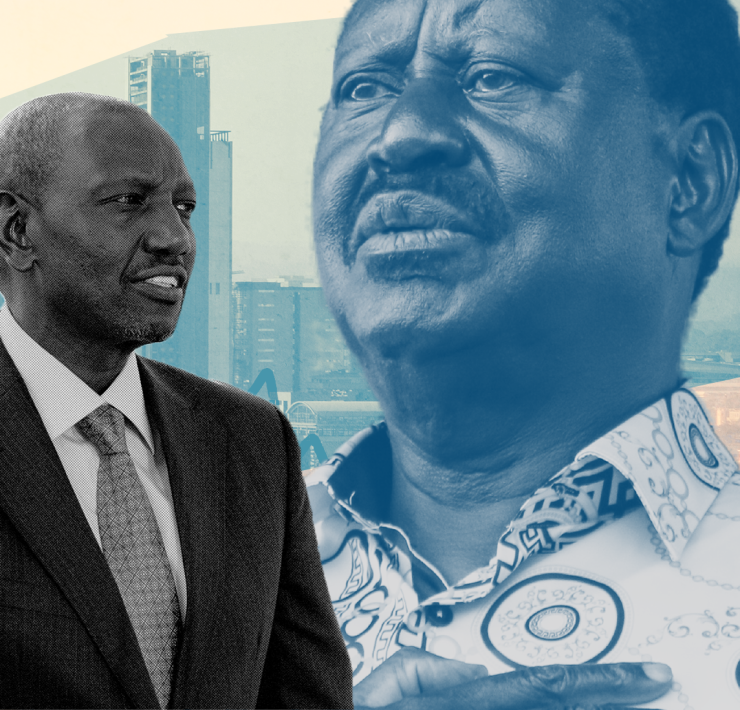In 2016, a near-brawl broke-out in the Kenyan Senate. The respective combatants were Evans Kidero, the then Governor of Nairobi County, and Mike Mbuvi Sonko, his Senator. It is not clear who won the actual fight, but we now know that Nairobians lost because the Auditor General just told us so. You see, during the consecutive gubernatorial administrations of Evans Kidero and Mike Sonko, no-one could explain the whereabouts of KSh 18 billion of collected revenue. For those who think in hard currencies, that is a respectable $12.6 million missing. But Nairobi residents didn’t know this until seven years later when the press finally reported that according to the Auditor General, “billions of shillings collected in Kenya’s capital may have ended in private hands.”
Public coffers are meant to be audited annually, within six months of the end of the financial year, June 30th being the set date. However, the time lag between the end of political administrations and auditing of their deeds is fairly long in Kenya. At one time, the Daniel arap Moi administration’s audits were a decade behind. In the Kidero–Sonko instance, the accounting is at least four years late; the report before the Senate concerns dealings between 2016 and 2019. The Auditor General challenged the Senate to speed up the County audit process as recently as December last year.
Why is this important? Well, for a start, it is impossible to run a government efficiently if revenue numbers are fudged or fake. You would never be able to sensibly budget in such circumstances. Second, the public has a right to information and an honest government too. Where (as in the Kidero–Sonko case) the Auditor General is accusing the officialdom of faking revenue, the public has a right to know this in real-time, to be able to take punitive and corrective action. This includes voting against politicians who run inept or corrupt county governments. When the public doesn’t have this power to act, then the culprits can go on to higher and higher offices, unimpeded by their past.
In the example we are examining, neither protagonist in the brawl was held accountable for the $12 million leakage, until they ran into what they might feel were tangential headwinds arising from unconnected court cases. Both continued undeterred in politics and national life.
Although Evans Kidero lost the Nairobi Governor’s seat to Mike Sonko in August 2017, he went on to contest the Homa Bay Governor’s election five years later. Having lost that race, he was appointed by President William Ruto to serve as Chief Administrative Secretary (CAS)in the Ministry of Trade. It was only thanks to a court challenge as to the constitutionality of the very office of CAS that Kidero’s public career was stopped. For his part, Mike Sonko went on to be Governor of Nairobi for three shambolic years. In 2020, the final year of his tenure, he handed over functions of the Nairobi County Government to the National Government, and by December 2020, Sonko had been impeached by both the Nairobi County Assembly and Senate of the Republic of Kenya. Today, he is barred from ever holding public office in Kenya.
But this being Kenya, that may not be the end of the tale. Watching recent events, I wouldn’t be at all surprised if some politician doesn’t soon start asking why shouldn’t debarred politicians be treated the same as persons who are subject to criminal convictions. That is to say why can’t we amend the Constitution to extend the Presidential Power of Mercy to impeached politicians? This will be the next battleground over the letter, spirit and true import of Chapter Six of the Constitution of Kenya – our national Leadership Standard.
Our political system is weak because of impunity and inability to enforce Chapter Six of the Constitution. Within the political parties, it is well-nigh impossible to exercise discipline and good order without difficulty. Within public administration, even the fairly light touch controls are now being watered down by active parliamentary initiatives to reduce accountability for decisions and actions of civil servants. Some have gone to extraordinary lengths, including seeking to redefine corrupt activities altogether. I have in mind the amendment proposed by MP Peter Kaluma who wants to amend Chapter Six of the Constitution to allow persons convicted of corruption and economic crimes to run for office.
Should Kaluma’s Law find favour in the political establishment, I have no doubt that you will see a push to do the same favour for impeached politicians like Sonko and Ferdinand Waititu, impeached ex-Governor of Kiambu County. Ironically, an opposition MP would have cleared the way for two Kenya Kwanza-supporting politicos to rejoin public office. It is clear that seemingly disparate legislative proposals actually have one thing in common. They are re-writing the definition of corrupt activities and the consequences of corruption are being watered down, if not actually being eliminated.
A few examples will suffice. Cash is the best means of passing or receiving a bribe. But if you give or take large bribes there is a law which requires banks in Kenya to alert the authorities with details of cash transactions involving more than a million shillings at a time. Details such as the recipient or intended purpose of withdrawn money and, worse, source of the money when depositing more than a million bob in the bank. See the problem? Well, for several years, there have been parliamentary and even presidential proposals to solve this problem by raising the cash reporting threshold.
On Mashujaa Day 2021, ex-President Uhuru Kenyatta directed the Treasury to raise the threshold without saying what the new amount should be. At the end of July 2023, President William Ruto’s Cabinet approved a new cash reporting threshold of just over two million shillings (2.12 million to be exact). The IMF politely coughed, and interested parties in large sums of cash were appropriately advised.
In June this year, MP George Ruku sought to delete two provisions of the Anti-Corruption and Economic Crimes Act that make public officials accountable for safeguarding public funds. Fears are that the Ruku amendment would legalise corruption and free all tender committees across Kenya from ever being held accountable for bid-rigging, are justified. Bid-rigging lies at the heart of public procurement corruption; from the KEMSA COVID-19 PPE scandal to the current edible oil, rice and fertiliser import schemes. Ruku would also legalise the phenomenon of engaging in public projects without having an allocated budget. Did he really consider the catastrophic effect of the inevitable deficits on our economy?
Why don’t these momentous activities get the public debate, and street protest, they merit?
Chapter Six is being attacked daily and I don’t see Members of Parliament and media houses campaigning in its defence. Can’t they see that it is Chapter Six that prevents corruption from returning as a permanent way of life and system of public administration? Do we want to wait until it is scrapped altogether before launching yet another protest movement?
Author
-
Mwalimu Mati is a Kenyan lawyer and governance consultant with over 25 years of work experience in the fields of economic governance, anti-corruption, research, advocacy and publication. Mati was the Chief Executive Officer of Mars Group Kenya, one of Kenya’s leading anti-corruption and fiscal transparency watchdogs, as well as publisher of www.marsgroupkenya.org, in its time Kenya’s largest governance web portal which specialised in anti-corruption and financial analysis. Previously, Mati was Executive Director of Transparency International (2006-2007), before which role he served the same organization as Deputy Executive Director (2002-2006). Mati cut his teeth in the 90s working as Programme Officer at the Public Law Institute, where he worked for close to a decade. Driven by his life-mission which is to empower citizens to demand accountability by sharing knowledge, Mati has been at the forefront in the provision of information resources of all forms and shapes to the public as he seeks to promote transparency in public and corporate sectors. Mati consults for Kenyan and international corporations and development agencies in strategy development, programme review and analysis, due diligence background checks and his specialist field of governance and anti-corruption. Mati is widely published locally and internationally, and has led in the writing and publication of some of Kenya’s most ground breaking governance and anti-corruption reports
Mwalimu Mati is a Kenyan lawyer and governance consultant with over 25 years of work experience in the fields of economic governance, anti-corruption, research, advocacy and publication. Mati was the Chief Executive Officer of Mars Group Kenya, one of Kenya’s leading anti-corruption and fiscal transparency watchdogs, as well as publisher of www.marsgroupkenya.org, in its time Kenya’s largest governance web portal which specialised in anti-corruption and financial analysis. Previously, Mati was Executive Director of Transparency International (2006-2007), before which role he served the same organization as Deputy Executive Director (2002-2006). Mati cut his teeth in the 90s working as Programme Officer at the Public Law Institute, where he worked for close to a decade. Driven by his life-mission which is to empower citizens to demand accountability by sharing knowledge, Mati has been at the forefront in the provision of information resources of all forms and shapes to the public as he seeks to promote transparency in public and corporate sectors. Mati consults for Kenyan and international corporations and development agencies in strategy development, programme review and analysis, due diligence background checks and his specialist field of governance and anti-corruption. Mati is widely published locally and internationally, and has led in the writing and publication of some of Kenya’s most ground breaking governance and anti-corruption reports







